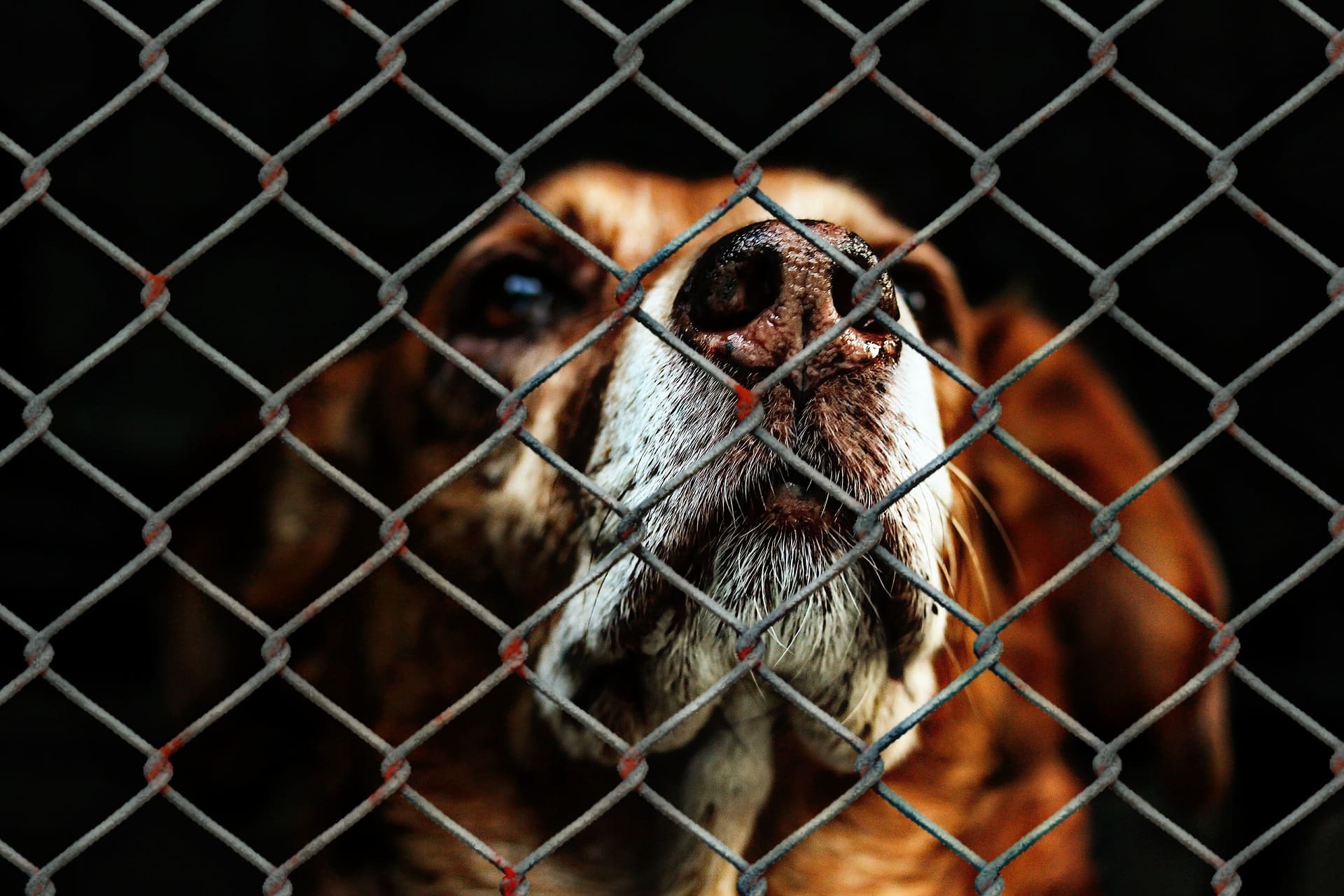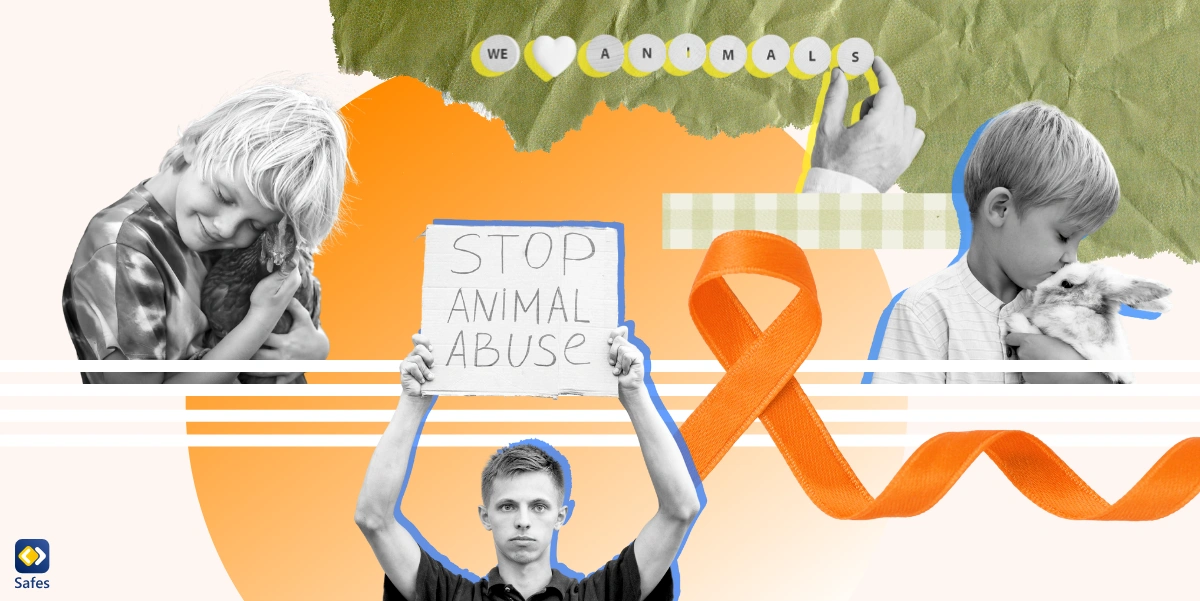Animal cruelty inflicts profound psychological harm that reverberates across species, affecting both the animals subjected to mistreatment and the humans who witness or perpetrate it. The emotional distress experienced by abused animals can lead to lasting behavioural changes, while for humans, exposure to such violence risks desensitisation and a diminished capacity for empathy. These effects contribute to broader societal challenges, including normalised aggression and cycles of violence. This article examines the intricate psychological consequences of animal cruelty, highlighting its impact on mental health, relationships, and social dynamics. By fostering awareness, promoting empathy-driven education, and prioritising rehabilitation for victims and offenders alike, we can address these far-reaching effects and advocate for a kinder future where all beings are treated with dignity
Animal cruelty is a topic that has garnered widespread attention and concern in recent years. The inhumane treatment of animals has long been a pervasive issue, with reports of abuse and neglect occurring in various forms, from domestic pets to farm animals and wildlife. While the physical consequences of such cruelty are evident, the psychological impact on both the animals and humans involved often goes unnoticed. This article will explore the complex and often overlooked effects of animal cruelty on the mental well-being of both animals and humans. It will delve into the emotional and cognitive responses of animals who have experienced mistreatment, as well as the psychological toll it can take on individuals who participate in or witness acts of cruelty. By examining the psychological impact of animal cruelty, we can gain a deeper understanding of the lasting effects it has on both the victims and perpetrators, and the importance of addressing this issue for the well-being of not only animals, but also our society as a whole.
Effects of animal cruelty on society
Animal cruelty not only inflicts immense suffering on animals but also has profound effects on society as a whole. One significant effect is the desensitization of individuals to violence and the erosion of empathy towards all living beings. Studies have shown that individuals who engage in acts of animal cruelty are more likely to exhibit violent behavior towards humans, indicating a worrisome link between animal abuse and future acts of interpersonal violence. Additionally, the perpetuation of animal cruelty normalizes a culture of violence, contributing to a society plagued by aggression and cruelty. Moreover, the financial burden of addressing the consequences of animal cruelty, such as increased healthcare costs and the strain on animal welfare organizations, puts a strain on society’s resources. These effects highlight the urgent need for awareness, education, and stricter enforcement of laws to combat the widespread impact of animal cruelty on our communities.

Understanding the link between violence
In order to understand the link between violence, it is crucial to examine the underlying psychological factors that contribute to aggressive behavior. Research has consistently demonstrated a correlation between exposure to violence, whether as a witness or a perpetrator, and an increased likelihood of engaging in violent acts. This connection can be attributed to various psychological mechanisms, such as desensitization to violence, the reinforcement of aggressive behavior, and the internalization of violent norms and values. Moreover, studies have shown that individuals who have been victims of animal cruelty are more susceptible to developing psychological issues, such as aggression, antisocial behavior, and even post-traumatic stress disorder. Understanding these complex psychological dynamics is essential for implementing effective prevention strategies and interventions to break the cycle of violence and promote a more compassionate and harmonious society.
Impact of witnessing animal abuse
Witnessing animal abuse can have a profound psychological impact on both animals and humans. For animals, the experience can result in severe emotional distress, leading to symptoms such as fear, anxiety, and even depression. They may become withdrawn, exhibit changes in behavior, and develop trust issues towards humans. In some cases, the trauma can be so severe that it may impact their overall well-being and ability to form positive relationships in the future. For humans, witnessing animal abuse can evoke strong feelings of sadness, anger, and helplessness. It can also contribute to the development of empathy and compassion towards animals, motivating individuals to take action against cruelty. However, in some instances, the exposure to such violence can lead to desensitization or a normalization of abusive behavior, posing a risk for the perpetration of violence towards both animals and humans. Therefore, it is crucial to address the psychological impact of witnessing animal abuse and promote education, awareness, and intervention programs to prevent and mitigate the consequences of such traumatic experiences.

Psychological trauma in animal victims
Experiencing psychological trauma is not exclusive to humans; animals also suffer the devastating effects of such experiences. Animal victims of cruelty and abuse can endure long-lasting psychological trauma that affects their emotional well-being and overall quality of life. The trauma can manifest in various ways, including heightened fear and anxiety, withdrawal from social interaction, and changes in behavior. Animals may exhibit symptoms similar to post-traumatic stress disorder (PTSD), such as hypervigilance, flashbacks, and avoidance behaviors. It is essential to recognize that animals, like humans, are susceptible to the damaging effects of psychological trauma, and addressing their emotional needs is crucial in promoting their recovery and well-being.
Long-term effects on animal perpetrators
Understanding the long-term effects on animal perpetrators is crucial in comprehending the full extent of the impact of animal cruelty. Research has shown that individuals who engage in acts of animal abuse and cruelty often display concerning behavioral patterns and psychological issues. These individuals may exhibit a lack of empathy, an inclination towards violence, and a higher likelihood of engaging in criminal behavior later in life. The link between animal cruelty and future violent acts, known as the “animal cruelty-human violence connection,” has been extensively studied and highlights the importance of intervention and rehabilitation for animal perpetrators. By addressing the underlying psychological factors that contribute to such behavior and providing appropriate support and treatment, it is possible to not only prevent further harm to animals but also promote the well-being and rehabilitation of the individuals involved.
Role of empathy in preventing abuse
Empathy plays a crucial role in preventing abuse and promoting the well-being of both animals and humans. By cultivating empathy, individuals are better able to understand and connect with the emotions and experiences of others, including those of animals. Empathy allows us to recognize the suffering and distress that animals may experience as a result of cruelty and abuse. It helps us to develop a sense of responsibility and compassion, motivating us to take action to prevent and address instances of abuse. Furthermore, empathy can serve as a protective factor, as individuals who are empathetic are less likely to engage in harmful behavior towards animals or other individuals. By promoting empathy through education, awareness campaigns, and community initiatives, we can create a society that values and respects the well-being of all living beings and actively works towards preventing and addressing instances of abuse.

Healing and rehabilitation for survivors
In order to facilitate healing and rehabilitation for survivors of animal cruelty, it is essential to provide comprehensive and specialized support services. The process of recovery may involve a combination of physical, emotional, and psychological therapies tailored to the unique needs of each individual. Physical rehabilitation programs can help survivors regain their physical strength and mobility, while also addressing any injuries or medical conditions resulting from the abuse. Additionally, mental health professionals play a crucial role in providing therapy and counseling to address the psychological impact of the trauma. Techniques such as cognitive-behavioral therapy, trauma-focused therapy, and mindfulness-based interventions can assist survivors in processing their experiences, managing distressing emotions, and rebuilding their sense of safety and trust. Offering a safe and supportive environment, along with access to resources such as support groups and animal-assisted therapy, can further aid in the healing process. By prioritizing the holistic well-being of survivors and providing them with the necessary tools and support, we can empower them to reclaim their lives and move forward on their journey towards recovery.
The importance of education and awareness
Education and awareness play a vital role in addressing and preventing animal cruelty. By increasing public knowledge and understanding of the psychological impact of animal cruelty on both animals and humans, we can foster empathy, compassion, and a sense of responsibility towards animals. Through educational initiatives, such as workshops, presentations, and community outreach programs, we can educate individuals about the signs of animal abuse, the importance of reporting suspicions, and the legal consequences of such acts. Furthermore, raising awareness about the link between animal cruelty and interpersonal violence can help break the cycle of violence and protect not only animals but also human victims. By promoting education and awareness, we can create a society that values the well-being and welfare of all living beings and works towards preventing and addressing animal cruelty in a comprehensive and compassionate manner.
In conclusion, the psychological impact of animal cruelty is a complex and devastating issue that affects both animals and humans. From the direct trauma experienced by the animals to the ripple effect it has on our society, it is clear that this is a problem that cannot be ignored. It is our responsibility as individuals and as a society to speak out against animal cruelty and work towards creating a more compassionate and ethical world for all beings. By acknowledging and addressing the psychological effects of animal cruelty, we can take steps towards healing and preventing this harmful cycle. Let us strive towards a future where both humans and animals can live free from the pain of cruelty.

FAQ
How does animal cruelty affect the psychological well-being of animals, and what are some common signs of psychological distress in abused animals?
Animal cruelty has a significant impact on the psychological well-being of animals. Abused animals often experience fear, anxiety, and depression, leading to long-lasting emotional trauma. Common signs of psychological distress in abused animals include aggressive or withdrawn behavior, excessive barking or meowing, self-harm, loss of appetite, and avoidance of human contact. It is crucial to recognize these signs and provide appropriate care and support to abused animals, such as rehabilitation programs and therapy, to help them recover and regain their mental well-being.
What are the potential long-term psychological effects of animal cruelty on animals, and how can these effects impact their behavior and ability to form relationships with humans?
Animal cruelty can have severe long-term psychological effects on animals. They may develop fear, anxiety, and aggression as a result of their traumatic experiences. These effects can significantly impact their behavior, making them more difficult to handle and train. Additionally, animals that have experienced cruelty may struggle to trust humans and form healthy relationships. They may become withdrawn or exhibit defensive behaviors, making it challenging to build a bond with them. Rehabilitation, patience, and positive reinforcement training methods can help mitigate some of these effects and allow animals to gradually regain trust and form healthy relationships with humans.
How does witnessing or being aware of animal cruelty impact the mental health of humans, and what are some common emotional and psychological responses to such experiences?
Witnessing or being aware of animal cruelty can have a significant impact on the mental health of humans. Common emotional and psychological responses include feelings of sadness, anger, helplessness, and disgust. Individuals may experience symptoms of distress, such as anxiety, depression, and post-traumatic stress disorder. The cruelty may also evoke empathy, leading to a strong desire to take action and protect animals. These experiences can contribute to a sense of moral distress and may lead to changes in behavior, such as advocating for animal welfare or adopting a vegetarian or vegan lifestyle.
Are there any specific psychological interventions or therapies that have been found to be effective in helping both animals and humans recover from the psychological trauma of animal cruelty?
There are several psychological interventions and therapies that have shown effectiveness in helping both animals and humans recover from the psychological trauma of animal cruelty. Animal-assisted therapy, for instance, involves using animals as part of the therapeutic process, providing comfort and support to survivors. Cognitive behavioral therapy (CBT) has also been found to be beneficial, helping individuals process and reframe traumatic experiences. Eye movement desensitization and reprocessing (EMDR) has shown promise in treating trauma in both humans and animals. Additionally, support groups and advocacy efforts play a crucial role in promoting healing and raising awareness about animal cruelty.
What are some potential societal impacts of animal cruelty on human psychology, such as desensitization to violence or increased aggression?
Animal cruelty has the potential to have significant societal impacts on human psychology. Research suggests that witnessing or participating in acts of animal cruelty can lead to desensitization to violence, where individuals become less sensitive towards the suffering of animals and humans alike. This desensitization may contribute to increased aggression, as individuals may become more tolerant or accepting of violent behavior. Additionally, animal cruelty can also influence the development of empathy and moral reasoning in children, potentially impacting their relationships and future behavior. It is crucial to address and prevent animal cruelty to safeguard not only the well-being of animals but also the psychological health of individuals and society as a whole.



